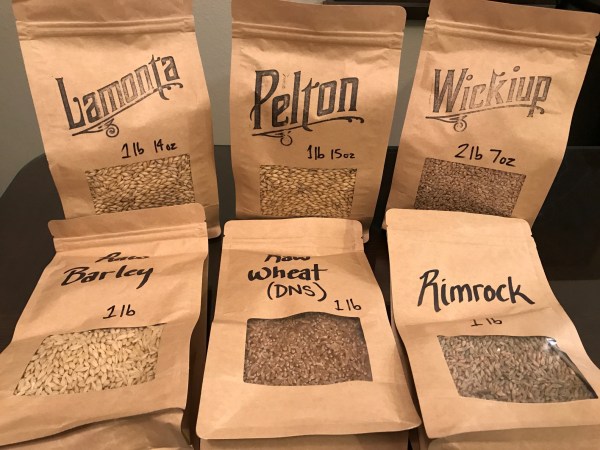Troy Casey gave a detailed interview on The Sour Hour where he shed light on much of the old-world beer production methods and philosophies used at Casey Brewing and Blending. In the interview, Casey spoke in length about lack of fermentation temperature control, absence of traditional brewery equipment, use of open fermentors, diverse saison yeast & mixed cultures, and desire to use 100% Colorado grown-ingredients. The problem is I don’t recall the finer details from any of these topics. Instead, the one thing I specifically remember from his interview was his absolute passion for maximizing time spent in the field with farmers. In other words, instead of brewing, Casey (head brewer) would rather spend his time building relationships with fruit growers. Let that sink in for a moment.
When I wrote the Third Leap Manifesto, I tried my best to instill a similar passion to Casey’s into my own brand:
Farm to table is not dead.
Seek ingredients from local, family-owned farms.
And emphasize the direct relationship between farmer and brewer.
Today, I am excited to announce the first major step toward living these words from our manifesto; Third Leap Brewing & Blending will proudly source malt and specialty grain through Mecca Grade Estate Malt!

Mecca Grade is an estate malthouse located in the Central Oregon High Desert. Their eighth generation farming family grows and malts over a half dozen specialty grains for brewing including:
- Pelton (Pilsner-style) – complex, slightly grassy . . . rustic, yet refined
- Lamonta (American Pale) – golden, sweet, and slightly biscuity
- Vanora (Vienna-style) – aromatically rich, slight walnut, and deep golden hued
- Metolius (Munich-style) – toasted graham cracker with deep orange and brown colors
- Wickiup (Hard Red Spring Wheat Malt) – rich Cream of Wheat flavor with hints of bread crust and brown sugar
- Shaniko (Soft White Winter Wheat Malt) – tastes like cookie dough right off the spoon
- Rimrock (Heirloom Spring Rye Malt) – warm bread with notes of graham and honey
- Opal 44 (Caramelized Toffee Malt) – sweet, moderately toasted, with hints of chocolate
In addition, Mecca Grade offers raw grain including 2-Row Spring Barley (Full Pint), Hard Spring Red Wheat (Rockland), and Spring Rye (Gazelle).
I discovered Mecca Grade by chance – through Instagram’s algorithm-driven Explore Page. I was excited to find out their farm is just one state away (exactly 345 miles from my doorstep), but even more excited to find out that they share many of the same philosophies as Third Leap, particularly terroir, and sustainability.
The Klann family believes that terroir can very much be a part of malt (and beer) just like it is with wine, cheese, and chocolate. To maintain terroir in malt, you must eliminate any source of bulk blending. Unfortunately, industrial malting companies blend bulk grain from different years, varieties, and states. This method achieves product homogenization but eliminates terroir. In contrast, the estate-grown barley from Mecca Grade is singularly sourced within a two mile radius of the malthouse which lends its unique taste of the Central Oregon High Desert.
The Klann’s have also developed a proprietary process called mechanical floor-malting that combines old-world traditions with modern techniques to lead to a sustainable malthouse. Continuous agitation and shallow grain beds allow for reduced energy consumption while maintaining consistency. Their malter design utilizes water sprayers (instead of submersion tanks) to continuously steep the grain at the required moisture level and all but eliminate waste water.
As for the malt, I purchased some Pelton, Lamonta, Wickiup, Rimrock, raw barley, and raw wheat. It will be at least one to two months before beers featuring Mecca Grade malt grace this blog (time is one of the most important ingredients in all of our beers), but here is a tentative plan for some upcoming batches:
- Pelton Saison – Farmhouse ale featuring 100% Pelton (pilsner-style) malt fermented with our foraged Massachusetts yeast
- Lamonta Saison – Farmhouse ale featuring 100% Lamonta (American pale) malt fermented with our foraged Massachusetts yeast
- Mecca Grade Saison – Farmhouse ale featuring a blend of Pelton, Lamonta, Wickiup, and Rimrock malts fermented with our foraged Massachusetts yeast
- LambID #1 – Idaho Spontaneous Ale with Pelton and raw wheat inspired by the Méthode Traditionnelle guidelines
- LambID #2 – Idaho Spontaneous Ale with Pelton and raw wheat inspired by de Garde Bu Weisse
- LambID #3 – Idaho Spontaneous Ale with Lamonta, Pelton, and raw barley
I am looking forward to all of these batches, but two in particular.
LambID #1 (portmanteau of lambic and Idaho) will be the first modern 100% spontaneously fermented beer produced in Idaho! It will feature Mecca Grade Estate malt, aged Northwest hops, raw Boise water, and ambient microflora (no pitched yeast or bacteria). During fermentation, I will pull a small sample of beer and send it to Bootleg Biology for isolation as part of the Local Yeast Project. Eventually, the isolated yeast will become my future house yeast strain (replacing the foraged Massachusetts strain we still use today).
Mecca Grade Saison will be very much like Farm Bière, except it will feature Mecca Grade Estate malt, Idaho-grown hops, raw Boise water, and our house foraged yeast. This recipe is the penultimate step in creating a 100% Mountain West beer. The only non-native ingredient for Mecca Grade Saison is our foraged Massachusetts yeast. Once an Idaho strain is isolated and screened from our LambID batches, we will rebrewed this recipe using 100% Mountain West ingredients in what will become our flagship beer.
Want to make the move to Mecca Grade too? Send Seth Klann an email at malt@meccagrade.com

